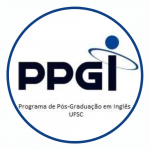Ciclo de Palestras – Leitura e(m) Interfaces: Teorias, Métodos e Aplicações
O Programa de Pós-Graduação em Inglês (PPGI) e o Núcleo de Estudos em Leitura (NEL) anunciam a nona e última palestra do Ciclo de Palestras “Leitura e(m) Interfaces: Teorias, Métodos e Aplicações”, evento que celebra os 50 anos do Programa de Pós-Graduação em Inglês: Estudos Linguísticos e Literários da UFSC, com palestras mensais de temas relacionados à leitura. Participe!
Building meaning builds teen’s brains: teens’ narratives predict neural development and young adult wellbeing
Mary Helen Immordino-Yang (University of Southern California)
Moderador: Sidnei Werner Woelfer (PPGI/FURB)
🕤 22/11/2021 – 15h00 (Horário de Brasília) – 11h00 AM (PT)
Ao vivo no canal do YouTube do PPGI UFSC e Plataforma Zoom.
ID da reunião: 825 2644 9105
Senha de acesso: 521767
Inscrições: bit.ly/CiclodePalestras2021
A major achievement of adolescent development is the capacity to integrate abstract cognitive construals with affective experiences to construct meaningful, transcendent narratives about one’s self and the world—coming to feel strongly about complex social issues. Leveraging these capacities, adolescents can be among the most visionary and idealistic citizens, as the world as recently seen with such extraordinary youth as Malala Yousafzai, Greta Thunberg, and Emma González. In this talk, I will discuss our longitudinal, neuropsychological studies of the processes underlying such capacities, their relations to scholarly skills like reading, and the implications for innovation in education, adolescent mental health support, and juvenile justice.
BIO: Mary Helen Immordino-Yang, EdD is a Professor of Education, Psychology and Neuroscience at the University of Southern California and Director of the USC Center for Affective Neuroscience, Development, Learning and Education (CANDLE). She studies the psychological and neurobiological development of emotion and self-awareness, and connections to social, cognitive and moral development in educational settings. She uses cross-cultural, interdisciplinary studies of narratives and feelings to uncover experience-dependent neural mechanisms contributing to identity, intrinsic motivation, deep learning, and generative, creative and abstract thought. Her work has a special focus on adolescents from low-SES communities, and she involves youths from these communities as junior scientists in her work.
A former urban public junior high-school science teacher, she earned her doctorate at Harvard University in 2005 in human development and psychology and completed her postdoctoral training in social-affective neuroscience with Antonio Damasio in 2008. Since then she has received numerous awards for her research and impact on education and society, among them an Honor Coin from the U.S. Army, a Commendation from the County of Los Angeles, a Cozzarelli Prize from the Proceedings of the U.S. National Academy of Sciences editorial board, and early career achievement awards from the AERA, the AAAS, the APS, the International Mind, Brain and Education Society (IMBES), and the Federation of Associations in Behavioral and Brain Sciences Foundation (FABBS).
Immordino-Yang was a 2018-2019 Spencer Foundation mid-career fellow. She served on the U.S. National Academy of Sciences committee writing How People Learn II: Learners, Contexts and Cultures, and on the Aspen Institute’s National Commission on Social, Emotional and Academic Development.
Currently Immordino-Yang is conducting several funded, multiyear neurobiological research studies on adolescent students and their teachers. She is serving on the advisory board of the UNESCO World Education Assessment, and as past president of IMBES, among other national and international roles.








